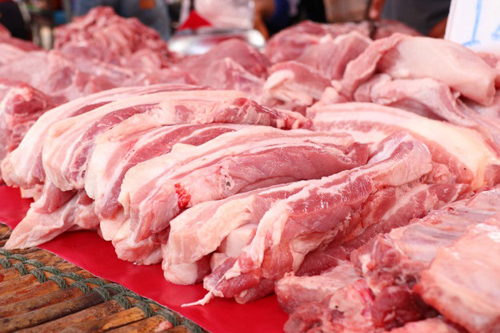“Through this policy, we shall augment our domestic food supplies, diversify our sources of food staples, and temper inflationary pressures arising from supply constraints and rising international prices of production inputs due to external conflict,” Baliscan added.
The proposed extension of reduced tariffs on these commodities aims to augment domestic supplies and temper inflationary pressures arising from supply constraints and external geopolitical conflicts.
“ Through the temporary reduction of tariff rates on selected key commodities and our continuous efforts to address constraints in our value chains, we will ensure that Filipino families will have sufficient access to food, especially this holiday season and in the coming months,” Balisacan said.
Jayson Cainglet, Samahang Industriya ng Agrikultura executive director, described yesterday’s pronouncement as a “sad day” for agriculture as “only a few privileged importers and traders have benefitted and will continue to benefit (from) …the EO.”
He said government should support local producers instead of incentivizing a few importers and farmers of other countries.
Cainglet said neither producers nor consumers and the government will benefit from the extended tariff cuts.
Danilo Fausto, Philippine Chamber of Agriculture and Food Inc. president, said while the objective of the extension is to bring down prices, consumers have not benefited from it historically.
“EO 171 is still in effect up to Dec. 31, 2022 and yet we see prices skyrocketing. How can you say then that the extension of EO 171 up to December 2023 will bring down prices?” Fausto said.
Fausto added the government encourages importation by bringing down tariffs and discourages exports by imposing a 12 percent value added tax (VAT) on export products that were previously exempt.
Fausto was referring to the removal of the VAT zero rating on export sales under the Corporate Recovery and Tax Incentives for Enterprises.
“Encouraging imports will kill local producers of pork, corn, including poultry relying on corn as feeds and rice industries. Making our exports uncompetitive due to taxes and unattractive for investments will lessen our ability to create jobs, increase income and expand local production,” Fausto said.
Raul Montemayor, Federation of Free Farmers national manager, shared the same disappointment, noting there is no reason to extend the tariff reduction especially in the case of rice.
“There is no shortage, there is no increase in rice prices and we continue to rely mainly on Asean countries for our rice imports,” Montemayor said. – With Jed Macapagal and Angela Celis




